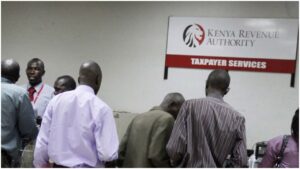Accountancy and finance profession less likely to face harassments, report

Sixty-one per cent of respondents to a global survey amongst accountancy and finance professionals say that they work in an environment free from harassment and discrimination, ACCA (the Association of Chartered Certified Accountants) reveals in a new report Leading Inclusion.
Through research questions and roundtable discussions, ACCA has gauged opinions from 10,000 ACCA members and future members on a wide range of issues relating to diversity and inclusion, starting with the question ‘Are we truly a profession that is open to all?’
The majority of the roundtable participants and 78 per cent of survey respondents felt that the profession was open to all, and nearly two-thirds saw a link between diversity and inclusion policies and organisational success. However, nearly two-thirds still thought that the profession has or might have an issue to deal with when it comes to diversity and inclusion. And over half – 54 per cent – felt they did not know what to do about this or were uncertain about next steps.
The report concludes that there is no basis for complacency, with 68 per cent saying the profession should do more to promote diversity and inclusion amongst its membership.
The report includes recommended actions to promote diversity and inclusion in organisations, from establishing a diversity and inclusion policy which sets out organisational principles to leadership principles that sets the tone from the top and holding leaders accountable – individuals make the difference; organisations can provide the frameworks. Suggestions are also made for actions that accountants can take to develop this inclusive and diversity agenda.
Helen Brand OBE, chief executive of ACCA says: ‘The foundation of ACCA in 1904 was to create a professional body for accountancy professionals that was open to all. We take pride in being the first body to admit women members as early as 1909, and to being a pioneer for other notable milestones in the profession’s evolution. The value of inclusion remains at the core of everything that we do. ACCA’s commitment in December 2020 to the UN Sustainable Development Goals is one aspect of this. Goals 5 and 10 particularly speak to aspects of diversity and inclusion and how we need to work together to address some of the fundamental issues we face.
‘Fundamentally we need to appreciate that the diversity agenda embraces a wide range of facets of our society. To focus on one is to ignore the importance of the rest. It is a time for the collective of ACCA members and future members, as well as those who may join the profession in the future, to consider whether we truly embrace diversity and inclusion and are equitable in our treatment of others and in providing equal opportunities for all.
The power of story and advocacy, in leading by example as a profession amongst all the professions, should not be lost on us. Collectively, and individually, we can improve social justice and build a better world. We must seize the opportunity.’
Clive Webb, author of the report and senior insights manager at ACCA adds: ‘The pandemic is impacting our society in many ways. The impact on social justice is starting to be felt in many ways too, and our report argues, this is something in which accountants must play a fundamental role. As accountancy and finance professionals, it’s important that we apply our robust and ethical lens to the challenges of the diversity agenda. By focusing on the symptoms of the issues rather than the causes we run the risk of not making substantive and lasting change when it is very necessary. I truly hope this report places these important issues centre stage so we can take the dialogue and engagement further.’
Global findings show:
· 41 per cent of respondents believe there are diversity issues to be addressed, and a further 22 per cent considered that there might be an issue.
· And when it comes to age, 43 per cent of respondents aged 18 – 35 believe there are issues to be addressed, compared with 31 per cent aged 56 and over.
· 81 per cent of respondents in Africa believe the profession is inclusive, compared with 67 per cent in Western Europe, 67 per cent in the Caribbean and 69 per cent in Central and Eastern Europe.
· Results for Asia Pacific reveal contrasts between places: 81 per cent Vietnamese respondents confirmed that there was a diversity issue to be addressed, 76 per cent in mainland China and 68 per cent in the Hong Kong Special Administrative Region of China in contrast to 51 per cent in Malaysia and 50 per cent in Singapore. For many in the region the issue has been focused on several areas, such as the role of women.
· 50 per cent said having a variety of different perspectives was the biggest benefit of a diverse and inclusive workforce, followed by better decision making and better employee engagement.
· 41 per cent of respondents said the organisation that they work for makes it easy for people from diverse backgrounds to be accepted.
· Just over half – 52 per cent – said everyone in their organisation has equal opportunity to succeed.
Clive Webb concludes: ‘Accountancy and finance professionals must be a force for good in the organisations that we work in and for. Our ethical lens and the trust in the profession means that we cannot but fail to embrace the diversity and inclusion agenda. It is too important to be left to one side, it is about the fabric and future of the organisations that we are involved in. It is not just the responsibility of the human resources team, but something that everybody in the organisation needs to embrace.’
The research for the report took place in October 2020, including 20 virtual roundtables across 11 regions, with the majority of survey respondents located across Western Europe, Africa, Asia-Pacific, and South Asia. Leading Inclusion can be found here: https://www.accaglobal.com/gb/en/professional-insights/global- profession/diversity_inclusion.html




